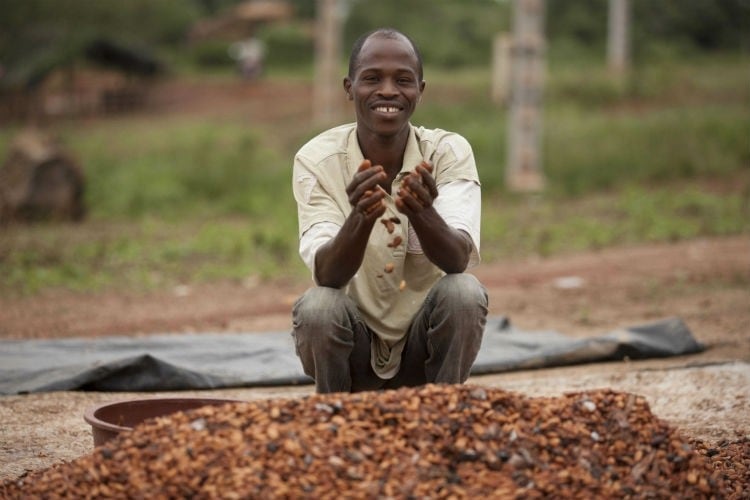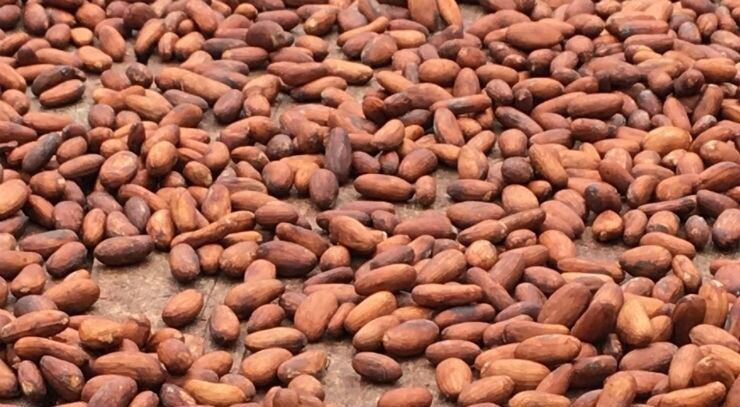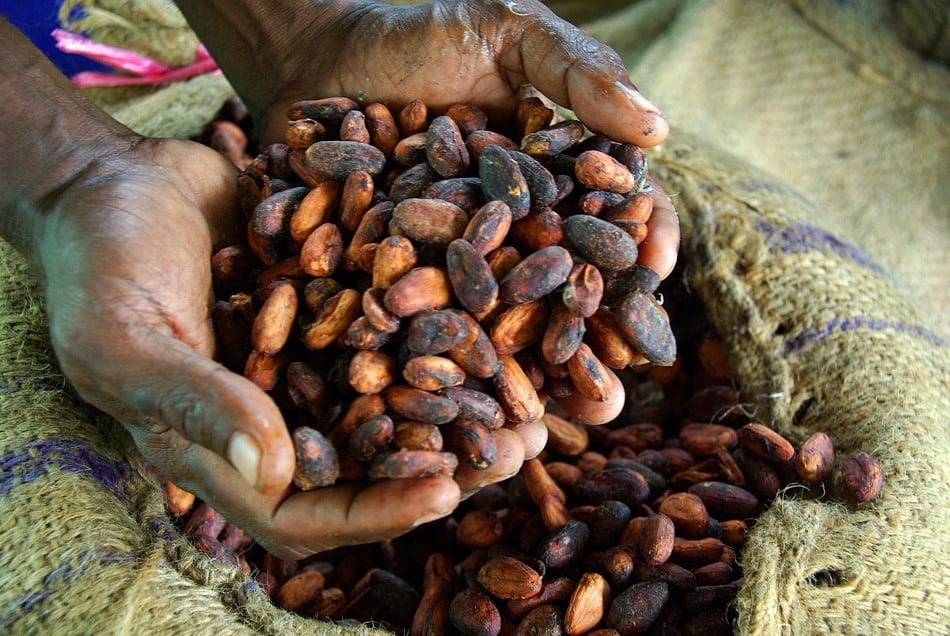Read the Voice network statement in full:
The world market price for cocoa is at an all-time high due to poor harvests. Over recent years, chocolate manufacturers have enjoyed record profits, while the vast majority of the farmers at the base of their cocoa supply chains have been unable to meet the basic needs of their families due to low cocoa prices and unfair contract terms. During recent weeks, supply shortages caused by a low harvest have seen cocoa prices climb steadily upwards, offering some hope that small-scale growers in West Africa, where most of the world's cocoa originates, could begin to reap greater rewards for their labour.
Read the ConfectioneryNews Report on this story
Instead, the companies supplying major chocolate brands have refused to buy cocoa at the increased market prices, claiming that doing so would "create too much risk" for them, if the chocolate companies refuse to pay the asking price down the line.
Clearly, there is a double standard at play. When prices are low, cocoa companies claim, "you can't interfere with the market". But suddenly, when prices are high, they want intervention in the market. This position is untenable.
Though higher farmgate prices are only part of what’s required to ensure cocoa growers earn a living income, they are a key prerequisite. There is not a business case for higher productivity if prices for farmers are too low and their risks too high. But that has been the stark reality for a very long time now. Farmers cannot simply grow their way out of poverty. But that has been the industry’s flawed approach to poverty alleviation.
Smallholder cocoa farmers do not have the capacity to avoid risk - risks of prices falling due to windfall harvests, or risks of crops failing due to weather or pests and diseases. They absorb the full brunt when prices are low. And even when prices are high, they hardly benefit, as prices are only high when harvests are bad.
Large cocoa and chocolate companies continue to make hundreds of millions in profits every year
Furthermore, in the two major cocoa producing countries of Ghana and Cote d’Ivoire, the forward sales system means that farmers are not receiving the currently high market prices in any case. Most of the cocoa harvested at the start of the new season on 1 October 2023 was sold already last winter/spring when prices were much lower.
Meanwhile, the large cocoa and chocolate companies continue to make hundreds of millions in profits every year. Companies can do so precisely because they can push risk further upwards in the supply chain - basically saying that the risk is not their problem, but the problem of their supplier - and because they can hedge their risks on the terminal markets.
It is clear who ‘can’t afford’ low prices: cocoa farming households, the vast majority of which live far below a living income line. The same families bear almost all of the risk in the sector.
This current market dynamic should be a wake-up call to everyone about the current system of ‘price discovery’, which benefits the most powerful actors in the supply chain and makes the weakest actors compete with each other.
Farmers cannot win in the current situation.
Virtually all large cocoa and chocolate companies either individually or collectively have committed to ensuring the farmers in their supply chain earn a living income. Yet just when the price is getting closer to what would be necessary for this to be possible, these same companies turn around and try to push the prices back down again.
These companies are not just the traders – who are directly engaged in the present standoff – but also the chocolate manufacturers and supermarkets, who make the vast majority of the profits in the supply chain and who are also refusing to buy cocoa unless the price is discounted.
Companies engaging in this behaviour are guilty of hypocrisy of the highest order.
As the VOICE Network, we call on companies to:
- In the short term, buy their usual volumes of cocoa at the current market price instead of trying to force the origin governments to lower the price by delaying their purchases or by reducing country differentials (as they are currently doing)
- In the medium term, adopt purchasing practices that enable farmers to earn a living income, including paying a Living Income Reference Price and negotiating long-term asymmetric contracts with small farmer suppliers where the companies start to assume a more equitable portion of the risk.
We call on producer governments to:
- Provide transparency on current sales prices - including country differentials and
- Provide transparency about management of the Living Income Differential
We also call to the European Union:
- To ensure that the implementation of the Deforestation Regulation (EUDR) and Corporate Sustainability Due Diligence Directive (CSDDD) ensures a living income for producers and requires companies to adjust their purchasing practices accordingly.
- VOICE Network: A watchdog and catalyst for a reformed cocoa sector.



